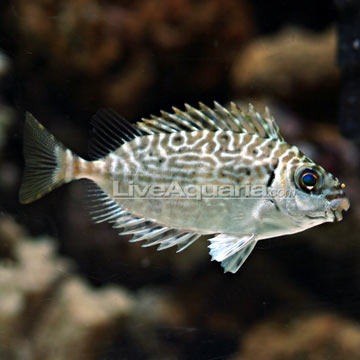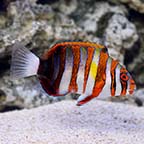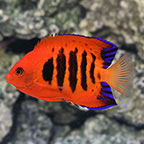
Additional locales and sizes may be available!
Additional locales and sizes may be available! Email me when availableQuick Stats
What do these Quick Stats mean? Click here for more information
What do these Quick Stats mean? Click here for more information
Overview
The Little Spinefoot, also called the Black Spinefoot, travels in huge schools among the reefs of the Indo-West Pacific. It has an oblong shape to its body, and the dorsal and anal fins are rigid spines. The color of the fish is a tan to gold, and it has darker camouflaging markings covering the entire body.
It requires a 70-gallon or larger aquarium. It is a very peaceful species except when housed with other Rabbitfish. Little Spinefoot may be housed with more aggressive fish. Its predators will tend to leave it alone because of its venomous dorsal spines, which it can raise when disturbed. Care must be taken when handling this fish to avoid the possibility of being stung by its venomous spines. Rabbitfish are generally reef-safe if they are well fed. If not, it is possible for them to nip at and consume some species of LPS and soft corals.
Its diet consists of a variety of fresh vegetables and algae. It does nip and possibly eat some soft and hard coral polyps.
Approximate Purchase Size: Small: 1" to 2"; Medium: 2" to 3"









